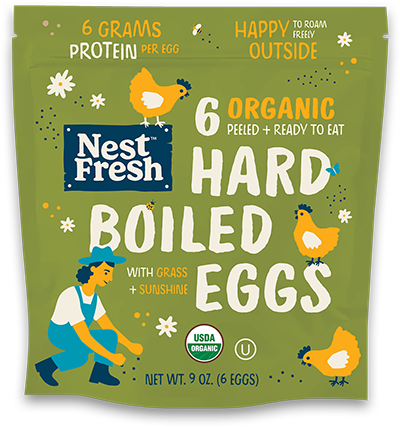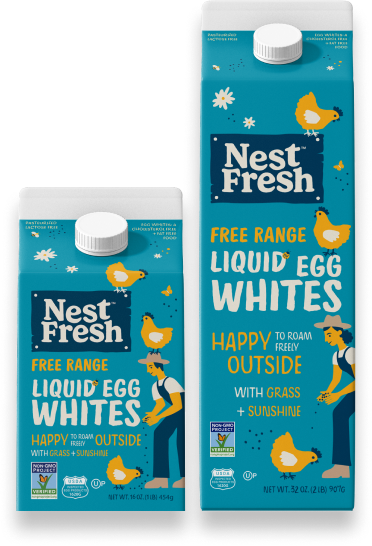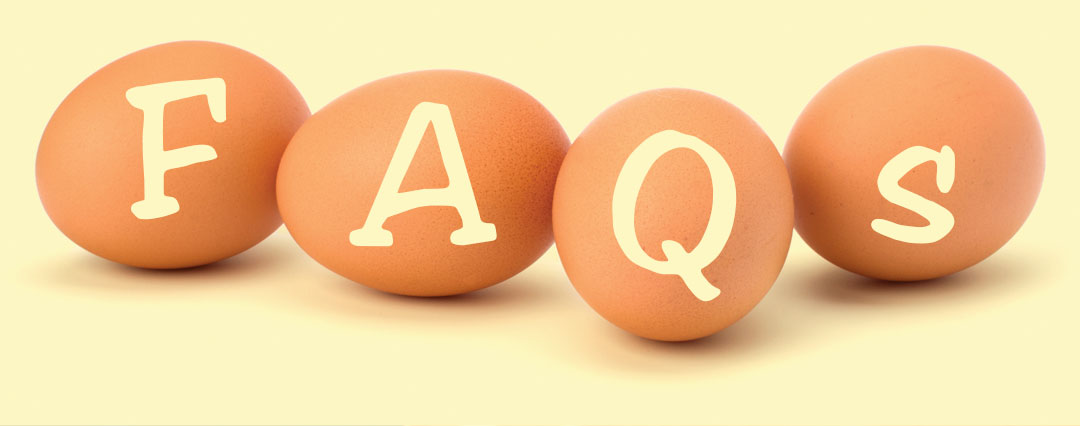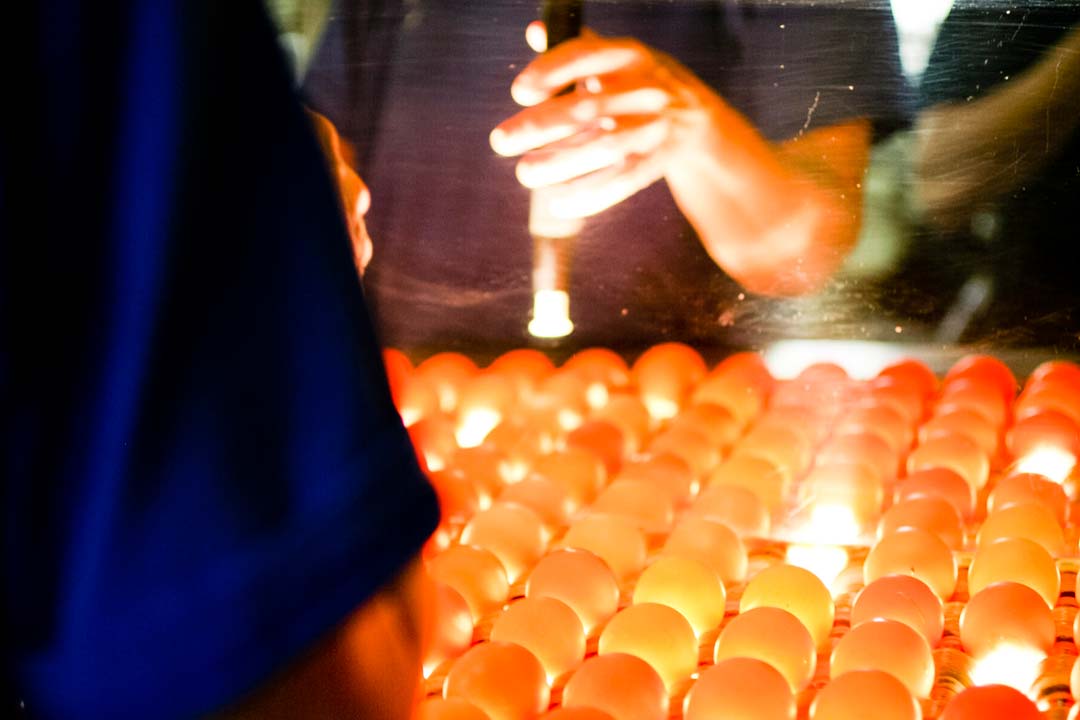All of our friends and family see us as egg-sperts since we work with eggs every day. So many people come to us with all of their egg-celent questions about our favorite food. Since just about everybody eats eggs, these questions are pretty common and universal. So, we figured we would round up our most asked questions.
Q: What is the difference between a white egg and a brown egg?
A: The only difference between white and brown eggs is the color. Generally, white hens lay white eggs and brown hens lay brown eggs. There is no other difference in taste or nutrition.
Q: Are my eggs still edible if it’s past the date on the carton?
A: Properly stored eggs maintain their peak quality for up to two to three weeks past the sell-by date. Fresh, uncooked eggs in the shell should be kept in the refrigerator in their cartons.
Q: What is the white cord next to the yolk?
A: The white cord is a natural part of the egg called the chalazae (ka-LAY-zee). It is an anchor that holds the contents of the egg together inside the shell.
Q: Am I still getting all of the nutrients in the egg if I only eat the whites?
A: Almost all of the nutrients in an egg are found in the yolk. While the white contains more than half of an egg’s protein, the cast majority of the iron, choline, Vitamin D, and Vitamin A are all found in the yolk. Visit the American Egg Board Egg Nutrient Chart for more information.
Q: What is the difference between egg sizes?
A: Eggs can come in Pee Wee, Small, Medium, Large, Extra Large, Jumbo, and Super Jumbo. The size of the egg is determined by the weight of the egg rather than the actual size. Typically, smaller hens lay smaller eggs. As the hen grows older and larger in size, so do the eggs she produces.
Q: Why do some eggs have blood spots? Can I still eat them?
A: Blood spots occur naturally in the laying process and do not mean the egg is fertilized or inedible. We have strict quality control measures that help us detect and remove eggs with blood spots, but some do reach the supermarket. This is more common in brown eggs because it is harder to see them during candling, the inspection process used to ensure the quality of our eggs.
We hope this clears up some of the questions you may have had about eggs and hens. If your question wasn’t answered here, let us know! Leave us a comment and we will be happy to answer it.






